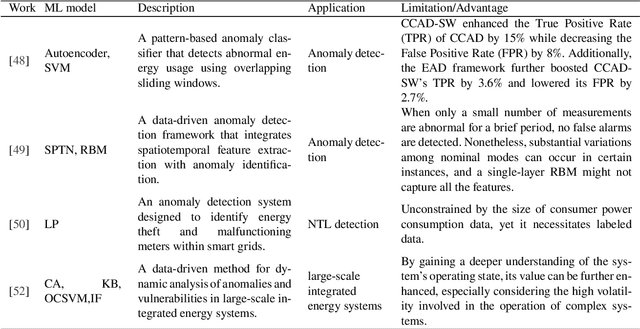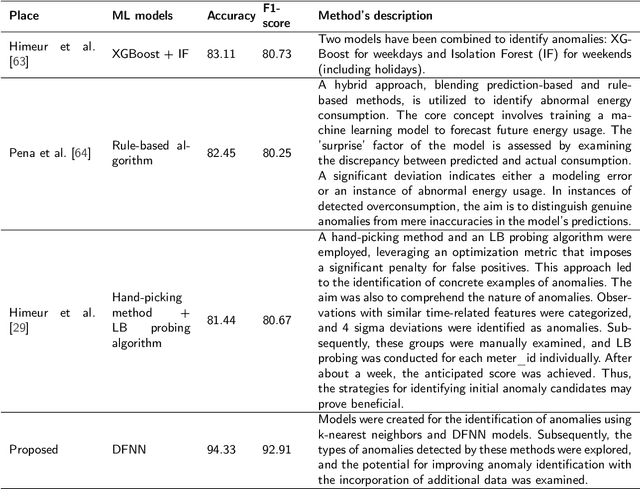Mariam Elnour
Unveiling Hidden Energy Anomalies: Harnessing Deep Learning to Optimize Energy Management in Sports Facilities
Feb 13, 2024



Abstract:Anomaly detection in sport facilities has gained significant attention due to its potential to promote energy saving and optimizing operational efficiency. In this research article, we investigate the role of machine learning, particularly deep learning, in anomaly detection for sport facilities. We explore the challenges and perspectives of utilizing deep learning methods for this task, aiming to address the drawbacks and limitations of conventional approaches. Our proposed approach involves feature extraction from the data collected in sport facilities. We present a problem formulation using Deep Feedforward Neural Networks (DFNN) and introduce threshold estimation techniques to identify anomalies effectively. Furthermore, we propose methods to reduce false alarms, ensuring the reliability and accuracy of anomaly detection. To evaluate the effectiveness of our approach, we conduct experiments on aquatic center dataset at Qatar University. The results demonstrate the superiority of our deep learning-based method over conventional techniques, highlighting its potential in real-world applications. Typically, 94.33% accuracy and 92.92% F1-score have been achieved using the proposed scheme.
 Add to Chrome
Add to Chrome Add to Firefox
Add to Firefox Add to Edge
Add to Edge